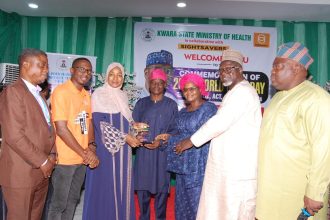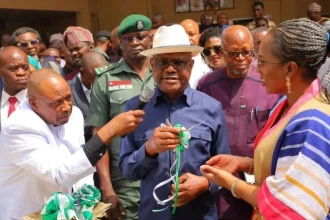First Lady of Nigeria, Senator Oluremi Tinubu, has described Female Genital Mutilation as a human rights violation with no health benefits.
She pledged the federal government’s commitment to ending the harmful practice across the country.
In a statement marking the International Day of Zero Tolerance for FGM on Thursday, Mrs. Tinubu warned that around 34 million Nigerian women and girls could be at risk of FGM by 2030.
She cited data from the United Nations Population Fund (UNFPA), stating that Nigeria has the highest absolute number of FGM cases globally, with over 20 million women and girls already affected and about 14 million more at risk if urgent action isn’t taken.
“Female genital mutilation is a human rights violation and has no health benefits,” Mrs. Tinubu stated. “Although Nigeria has made significant progress towards eliminating FGM through efforts from the government, UNFPA/UNICEF Joint Programme, civil society, and community leaders, much work remains. The administration of President Bola Tinubu remains committed to ending FGM, and I will continue to advocate for the necessary support.”
The Minister of Women Affairs, Imaan Sulaiman-Ibrahim, echoed the First Lady’s sentiments during a press briefing in Abuja. She highlighted that Nigeria accounts for 19.9 million women and girls affected by FGM, with a prevalence rate of 20% among women aged 15 to 49.
“We are reaffirming our commitment to ending one of the most serious violations of human rights,” said Sulaiman-Ibrahim. “FGM is not culture; it is not tradition. FGM is a human rights violation. Together, let us ensure that every girl in Nigeria is free to live, free to dream, and free to thrive.”
The minister outlined the government’s strategy to tackle FGM, which includes strengthening legal frameworks, increasing community interventions, and promoting cultural and behavioral change. Planned activities include advocacy walks to the National Assembly and grassroots engagement in Jigawa State.
Executive Secretary of the National Human Rights Commission (NHRC), Dr. Tony Ojukwu, called for stronger collaborations to end FGM. “The commission has always been at the forefront of eradicating this painful, harmful, and degrading practice,” he said.
Ojukwu also mentioned NHRC’s past efforts, including a joint program with UNFPA and Civil Resource Development and Documentation Centre (CIRDDOC) that produced a training manual on human rights and FGM in Nigeria. The manual guides reporting FGM cases and has been used in training sessions across states like Imo, Ebonyi, Osun, Oyo, and Ekiti, showing positive results in reducing FGM cases.
“We urge all Nigerians to report cases of FGM and other human rights violations to the Commission. Our collective voice is our greatest strength, and with united efforts, we can achieve a Nigeria free from FGM,” Ojukwu added.
Citizens can report FGM cases through the NHRC’s toll-free line, 6472, to ensure victims receive the necessary protection and support.











